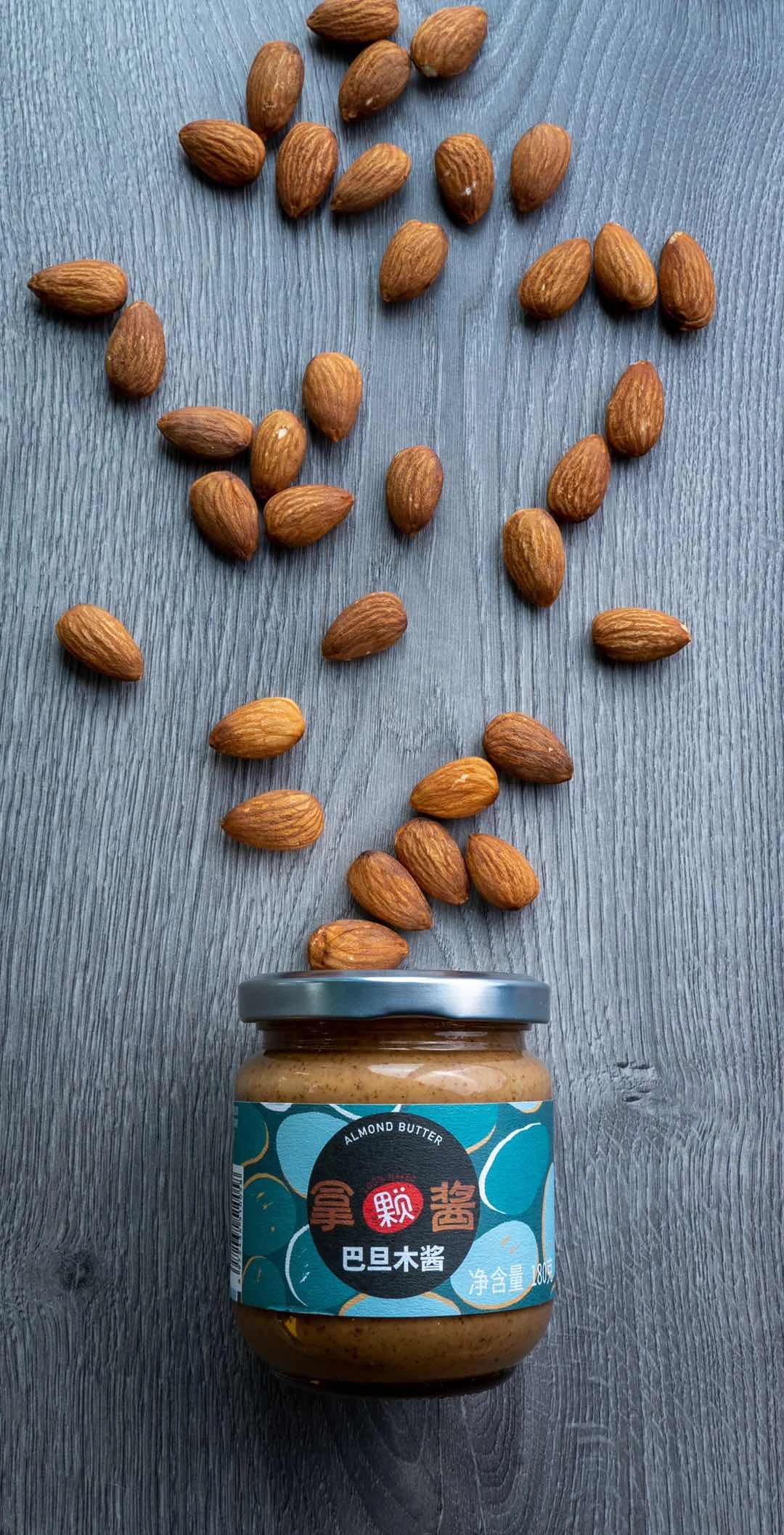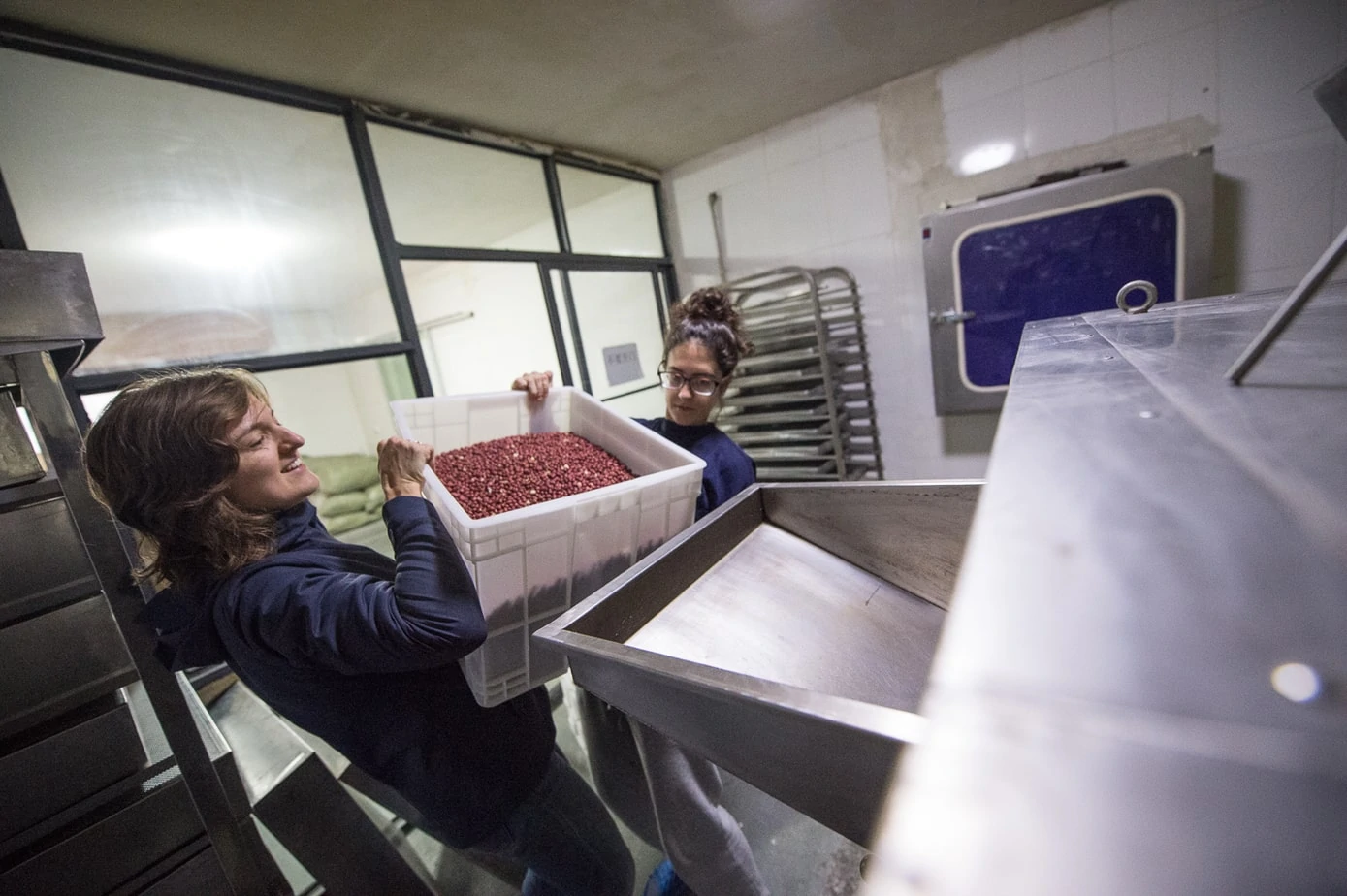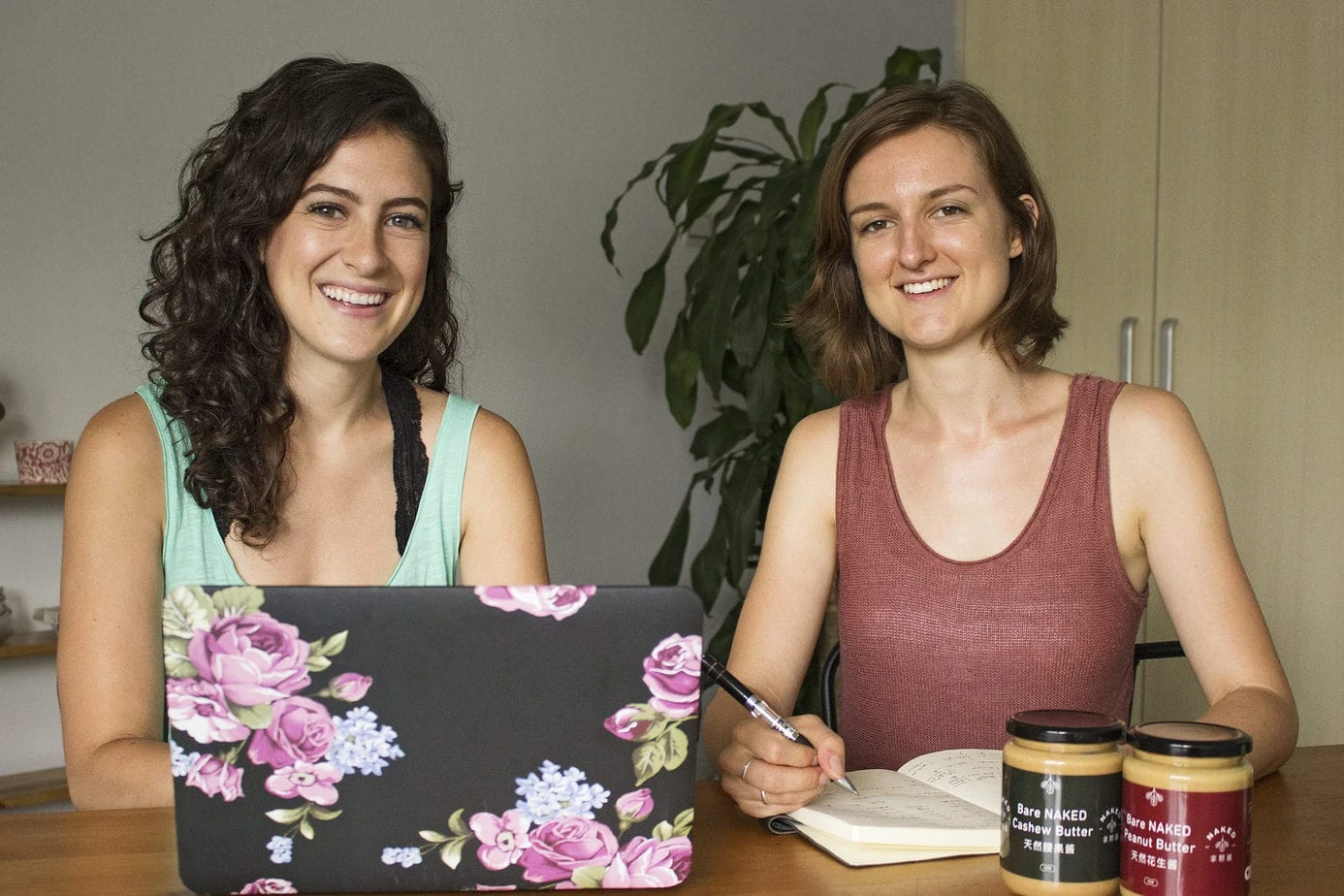IN THIS SERIES, WE LOOK AT CHINA-BASED ENTREPRENEURS, THE BUSINESSES THEY HAVE DEVELOPED AND HOW THEY HAVE COPED WITH RECENT OBSTACLES CREATED BY THE PANDEMIC. THIS WEEK, MEREDITH SIDES OF NAKED NUT BUTTERS EXPLAINS WHY SHE STARTED HER BUSINESS, AND HOW THE HEIGHTENED HEALTH CRAZE IS HELPING IT THRIVE
I am originally from the US and moved to Beijing in 2011 on a gap year teaching English before moving back to the States to attend medical school. I loved it so much that after one year I decided to stay for one more, and then one more… and now I’ve been here 9 years with no plan to leave any time soon.
I met my now business partner Katie in 2016 when we moved in together. She saw how obsessed I was with healthy nut butter, and since it was really hard to find in Beijing at the time, I would bring suitcases full of it when I traveled back from visits to the US. Katie (who is originally from the UK and has also been in China for 9 years) likes making things and has previous experience in F&B, so together we decided to try and make some nut butter at home.
We eventually started experimenting with interesting flavour combinations like spicy chilli powder with tiramisu syrup, or kahlua and brown sugar. We gave it to our friends to try, and they absolutely loved it. We started making small batches and lugging them around to various flea markets around town, until we found ourselves blending nut butter in every spare moment we had. In 2017, we decided to take the leap and quit our jobs to grow the nut butter business full time – Naked Nut Butters was born.
Around the same time, we met up with an old friend of Katie’s who works for a Chinese NGO, The Paradise Foundation. He told us about the work the NGO does (nature conservation and education) and told us how just outside one of their nature reserves in Sichuan they grow all-natural peanuts. We tried making peanut butter with it and it was amazing. We ended up visiting the village, meeting the rural farmers, learning more about the work Paradise does and decided to start our very own factory there.
We eventually started experimenting with interesting flavour combinations like spicy chilli powder with tiramisu syrup [and] gave it to our friends to try… they absolutely loved it.
With zero technical background, Katie and I were able to research and set up the production line, while Paradise assisted us in hiring locals and sourcing the nuts directly from the farmers. Our factory has been up and running since mid June 2018, and since then we’ve worked to expand our product line and our reach. We sell both online and offline all across mainland China, and are now working on a nut-based cheese (non-dairy) to bring to market. Our mission is to expand our social impact by providing delicious, nut-based products and by sourcing directly from farmers who grow ecologically in order to bring their crops to the larger market.
Pre-Covid, we sold both online and offline, at retail shops, restaurants, cafes, bakeries, and gyms. About 70% of our sales were online, and 30% offline. We tried to push most of our customers to buy from our online shop, because it’s the easiest way to turn them into repeat customers and because most people prefer buying online anyway. I am still located in Beijing and Katie has moved to Shanghai to expand the brand and better connect with our customers and allow them to try the product.
We ended up visiting the village, meeting the rural farmers and decided to start our very own factory there.
For the first few weeks after Covid-19 hit, our sales completely stopped because delivery companies weren’t running (they hadn’t been running over CNY, which is normal, but then it continued for a couple of weeks after). Also, most places where we sell offline were forced to close, so we didn’t move any units offline either. We took that time to brainstorm, strategise and plan, and were just waiting for the day we could deliver again.
Once delivery was up and running again, people were buying online even more than before because online grocery shopping went up as more people stayed inside. People wanted to cook more at home, and were looking into healthier cooking more than ever. They were also becoming more wary of animal-based products since Covid-19 originated in animals. The lead time for ordering from our suppliers (for jars, boxes, etc) also increased as people were slower to get back to work, but luckily we had just made a big batch before CNY so we were pretty safe on inventory. Since then, our sales have continued to increase online, and are also now increasing offline as people feel it’s safer to go out.
We have always been a very online-heavy company when it comes to marketing, just because we believe it’s the easiest way to reach the greatest number of people, so when Covid came along, we didn’t do things that differently. We have a strong presence on WeChat, Weibo, and Instagram, and we continue to put out information and recipes to let people know both why and how they should eat our product.
People were becoming more wary of animal-based products since Covid-19 originated in animals.
We’ve also had a number of other online platforms reach out to us to sell our product because there’s generally an increased demand for our type of product in the market since the pandemic. As far as offline goes, Beijing is still dead. We haven’t done any offline events this year at all in Beijing. However, the scene in Shanghai has picked up again in full force and we’re attending some sort of market or event every weekend. There have also been several farmer’s markets that have moved online, which is a great way to get our message out there and sell our product to new customer groups.
In the end, things haven’t changed too drastically for us. We’ve always promoted a healthy, all-natural, plant-based product, and we’ve been a big part of the growing plant-based industry in China. What’s changed in the last year is people’s attitudes toward food, wanting it to be healthier and to buy from companies that are more transparent about how that food is being made.
People are seeking us out now more than ever. While I do miss all the offline markets we used to do in Beijing because I love meeting our customers in person (and I have crazy FOMO about all the events my partner is attending in Shanghai), it’s actually helped us to divide responsibilities a bit more. Now, my partner is more focused on offline marketing while I concentrate online. We just hope people don’t fall back into their old, unhealthy eating habits!




